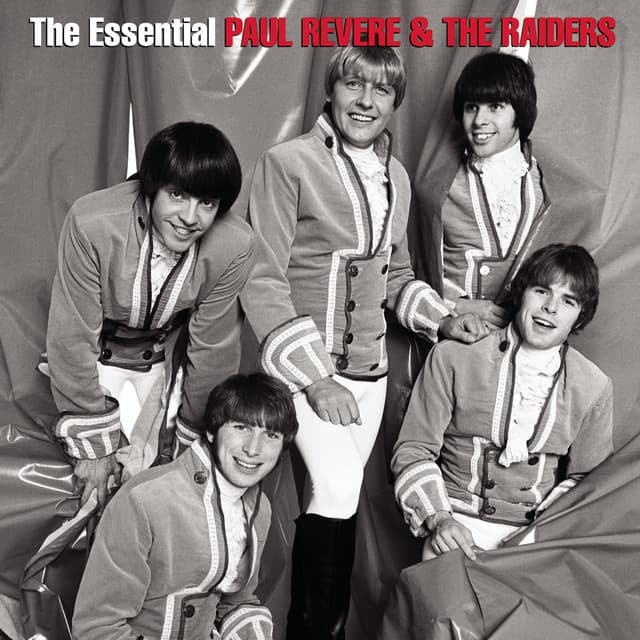
A Spirited Blast of Garage Rock Innocence: When a Simple Tune Became a Riotous Celebration of Youthful Affection.
“Good Thing,” a raw and energetic burst of garage rock exuberance, a testament to the unbridled joy of youthful affection, became a defining moment for a band that embodied the spirit of the mid-1960s rock and roll explosion. This 1966 single by Paul Revere & The Raiders reached number five on the Billboard Hot 100, a testament to its immediate appeal and the infectious energy of its sound. It’s a song that captures the raw, unfiltered emotions of young love, the simple joy of finding connection, and the uninhibited celebration of a “good thing” that feels both immediate and timeless. It’s a song that transforms a simple declaration of affection into a riotous anthem of youthful exuberance.
Imagine a packed teen club, the air thick with the sounds of screaming fans and the raw energy of a band tearing through a set. Paul Revere & The Raiders, with their flamboyant costumes and infectious stage presence, deliver a performance that’s both chaotic and undeniably captivating. Mark Lindsay’s raw, youthful vocals, coupled with the band’s driving rhythm and jangly guitars, create a sonic landscape that’s both immediate and undeniably catchy. The song, featured on their album “Just Like Us!,” wasn’t just a garage rock hit; it was a snapshot of a cultural moment, a testament to the raw energy and unbridled enthusiasm of a generation. The simple lyrics, the driving beat, and the infectious melody created a sense of timelessness, a feeling that this celebration of youthful affection had been echoed countless times, and would continue to resonate for generations.
The song’s genesis, within the context of Paul Revere & The Raiders’ career, marked a period of artistic evolution and commercial success. They were a band that had honed their craft on the regional circuit, developing a raw and energetic sound that resonated with the burgeoning garage rock scene. With “Good Thing,” they captured the essence of this sound, blending elements of rock and roll, R&B, and pop into a concoction that was both infectious and undeniably their own. They weren’t simply playing music; they were creating a sonic party, a celebration of youthful energy and uninhibited joy.
For those of us who remember the mid-1960s, “Good Thing” evokes a sense of raw, unadulterated rock and roll, a yearning for a time when music served as a soundtrack to youthful rebellion and unbridled enthusiasm. It was a time of cultural change, a time when artists were not afraid to embrace the raw energy of rock and roll and to celebrate the simple joys of life. Paul Revere & The Raiders’ performance, with its driving rhythm and infectious melody, offered a moment of pure, unadulterated fun, a sense of shared exuberance. It was a song that spoke to the deepest longings of the human heart, the desire for connection, for joy, and for a sense of belonging in a world that often felt chaotic and uncertain.
The song’s enduring appeal lies in its timeless message of youthful affection and the unbridled joy of finding connection. It’s a reminder that even in a world often filled with complexity and cynicism, there’s still room for the simple pleasures of love and celebration. It’s a song that transcends generations, speaking to the universal human experience of finding joy in connection and celebrating the “good things” in life. And even today, decades later, “Good Thing” retains its power to move and inspire, its driving rhythm and infectious melody offering a moment of pure, unadulterated fun, a sense of shared exuberance. It’s a testament to the power of a simple tune to capture the raw energy of youth, a reminder that sometimes, the most profound emotions are expressed through a raw and uninhibited celebration of joy. It’s a song that serves as a timeless anthem of youthful exuberance, a reminder that the “good things” in life are worth celebrating with all our hearts.